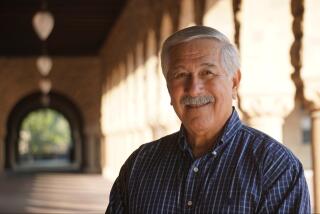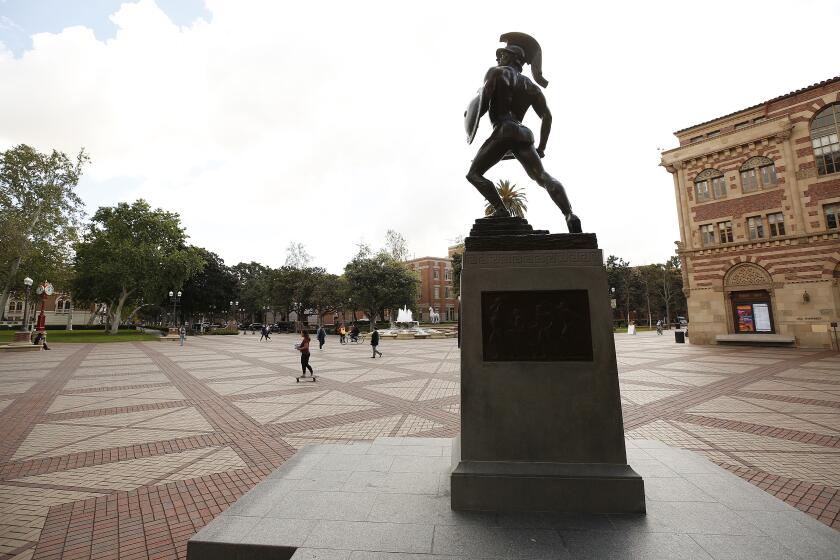Escaping the mean streets
Growing up in Compton and later in Lynwood during the 1960s and ‘70s, I learned way more about violence than a kid should know.
I lost a close childhood friend to a bullet, and I knew at least a dozen kids at school who never made it to adulthood. Most of them died from gunshots. I remember going to high school on Monday mornings and wondering who hadn’t made it through the weekend.
There were a lot of guns around. The gang members and criminals had them, and somelaw-abiding people had them too. My father, who grew up hunting in Oklahoma, slept with a gun under his pillow for protection after he moved to Compton. But that wasn’t what most of the guns in my neighborhood got used for.
I have tried to explain to friends what it was like — and how I’m sure it still is — walking the streets of Compton and Lynwood; I always had to be aware of my surroundings. I focused on who was coming toward me on either side of the street and looked over my shoulder frequently. I evaluated every passing car.
I didn’t learn until later in life how it felt to just go for a walk. No one just went for a walk in my neighborhood in those days.
In college, on a football scholarship, I fell in love with rugby. I played the game from the age of 18 until I was 33, playing the last 10 years with the Belmont Shore Rugby Club. In my last year, our coach was asked to take another team on a tour abroad, and he invited me to tag along. I decided to treat myself and go. It would be my first time outside the country other than a few road trips to Tijuana with college buddies.
As an inner-city kid, I was in awe of historic Europe; I saw the Louvre in Paris, walked past the Manneken Pis in Brussels, and sipped a beer in a public square in Luxembourg. And then we got to Amsterdam.
In the Dutch capital, our coach called us together in the lobby of the hotel to offer some last-minute advice before we headed out to see the sights. Amsterdam, he cautioned, was the wildest and most dangerous city in Europe, so we needed to be careful. We shouldn’t go out walking around by ourselves, staying in groups of at least two or three.
His concern for his players was genuine, and he went on and on about our safety. Meanwhile, my teammates and I were eager to hit the streets: There were beers to drink, songs to sing and girls to chase. We listened politely to his warnings until finally I raised my hand.
“Coach, are there any guns in this city?” I asked.
“No guns,” he replied. “Handguns are outlawed in most of Europe. It’s illegal to own one.”
“A city without guns?” I asked, getting to my feet. “I’m from Compton, coach. A knife or a bat I can outrun. I’m outta here.”
Everyone laughed and the tension lifted. I headed out the door and onto the streets of Amsterdam, and for the first time in my life I felt free.
Emmanuel Burgin is the former sports editor of El Sol de San Diego and the author of the novel “Vagabond Blues.”
More to Read
A cure for the common opinion
Get thought-provoking perspectives with our weekly newsletter.
You may occasionally receive promotional content from the Los Angeles Times.










